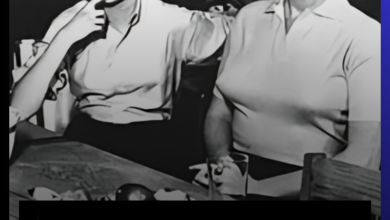Why Denzel Washington Cried During ‘Black Panther’ Premiere: A Changing of the Guard in Hollywood
OPINION: This article may contain commentary which reflects the author's opinion.
In a heartfelt moment shared in the new Apple TV+ documentary Number One on the Call Sheet, Denzel Washington opened up about his emotional reaction to watching Black Panther, describing it as a pivotal moment in his career and in the history of Black representation in Hollywood. The documentary, which premiered on March 28, 2025, explores the influence of Black leading men and women in the film industry, featuring interviews with Washington, Eddie Murphy, Morgan Freeman, Halle Berry, and Viola Davis.
For Washington, a nine-time Oscar nominee with two wins, Black Panther marked a profound shift in the landscape of Hollywood storytelling. The 2018 blockbuster, which starred Chadwick Boseman and Michael B. Jordan, became a groundbreaking cultural phenomenon, not only as a critical and commercial success but also as a milestone for Black-led narratives in mainstream cinema.
“The Baton Had Been Passed”
Reflecting on the experience of watching the film, Washington revealed that it brought him to tears, acknowledging that it signified a changing of the guard in Hollywood. “I cried a little bit when I saw Black Panther,” Washington admitted. “I felt, I don’t know if the word is ‘relieved,’ but I was proud to see what they had done and seeing where they were headed.”
Washington’s emotional response was rooted in both pride and recognition. As an actor who had spent decades shaping the portrayal of Black excellence in Hollywood with iconic roles such as Malcolm X, Rubin Carter, and Macbeth, Washington saw the success of Black Panther as a moment where the torch had been passed to a new generation of Black actors and storytellers. For Washington, it was not just about the film’s success—it was about the impact it had on the industry, signaling that Black-led stories were becoming an undeniable force in Hollywood.
At the time of Black Panther‘s premiere, Washington was performing on Broadway in The Iceman Cometh but attended the film’s premiere, choosing to skip the red carpet to have a private conversation with director Ryan Coogler and Chadwick Boseman. This intimate moment, for Washington, was deeply meaningful as he watched the movie unfold.
A Moment of Pride
While Washington hadn’t anticipated Black Panther becoming a billion-dollar global hit, he was moved by its cultural significance. “I didn’t think it would be a billion-dollar movie, but I was proud to see it reach that level,” Washington reflected. “More importantly, I recognized the importance of what they were doing—pushing the boundaries and showing what Black storytelling could be in Hollywood.”
Black Panther not only achieved immense commercial success but also reshaped how Hollywood viewed Black narratives, characters, and talent. For Washington, it marked the culmination of a long-awaited transformation in the film industry, one that was both deeply personal and professionally gratifying.
The Legacy of Black Panther and the Future of Black Storytelling
Washington’s contributions to Black excellence in film, through roles in films like Glory, Training Day, and Fences, have set a precedent for the industry. Black Panther‘s success, however, opened the door for even greater opportunities for Black talent and Black-led stories to thrive in mainstream Hollywood.
In Number One on the Call Sheet, Washington also discussed the impact of Chadwick Boseman, who passed away in 2020 at age 43, and how his portrayal of T’Challa in Black Panther redefined what it meant to be a Black superhero. Washington joins a chorus of voices in the documentary that celebrate Boseman’s cultural impact and the lasting influence of Black Panther on the global stage.
A Possible Role in Black Panther 3
In November 2024, Washington revealed that Ryan Coogler had been writing a role for him in the upcoming Black Panther 3, hinting at a possible appearance in the next installment of the beloved franchise. This potential involvement speaks to the full-circle moment that Washington’s career could come to, as the new generation of Black actors and filmmakers, including Coogler, looks to include established icons like Washington in their vision of the future of Black cinema.
Conclusion
Denzel Washington’s reflections on Black Panther in Number One on the Call Sheet underscore not just a personal emotional response but also a profound shift in the industry. For Washington, Black Panther was not just a movie—it was a symbol of progress, a turning point where the baton was passed to a new generation of Black storytellers who would carry forward the legacy of Black excellence in Hollywood. As the documentary highlights, Black Panther’s cultural impact remains a defining moment, not just for the film industry but for the power of Black-led storytelling in shaping the future of cinema.



